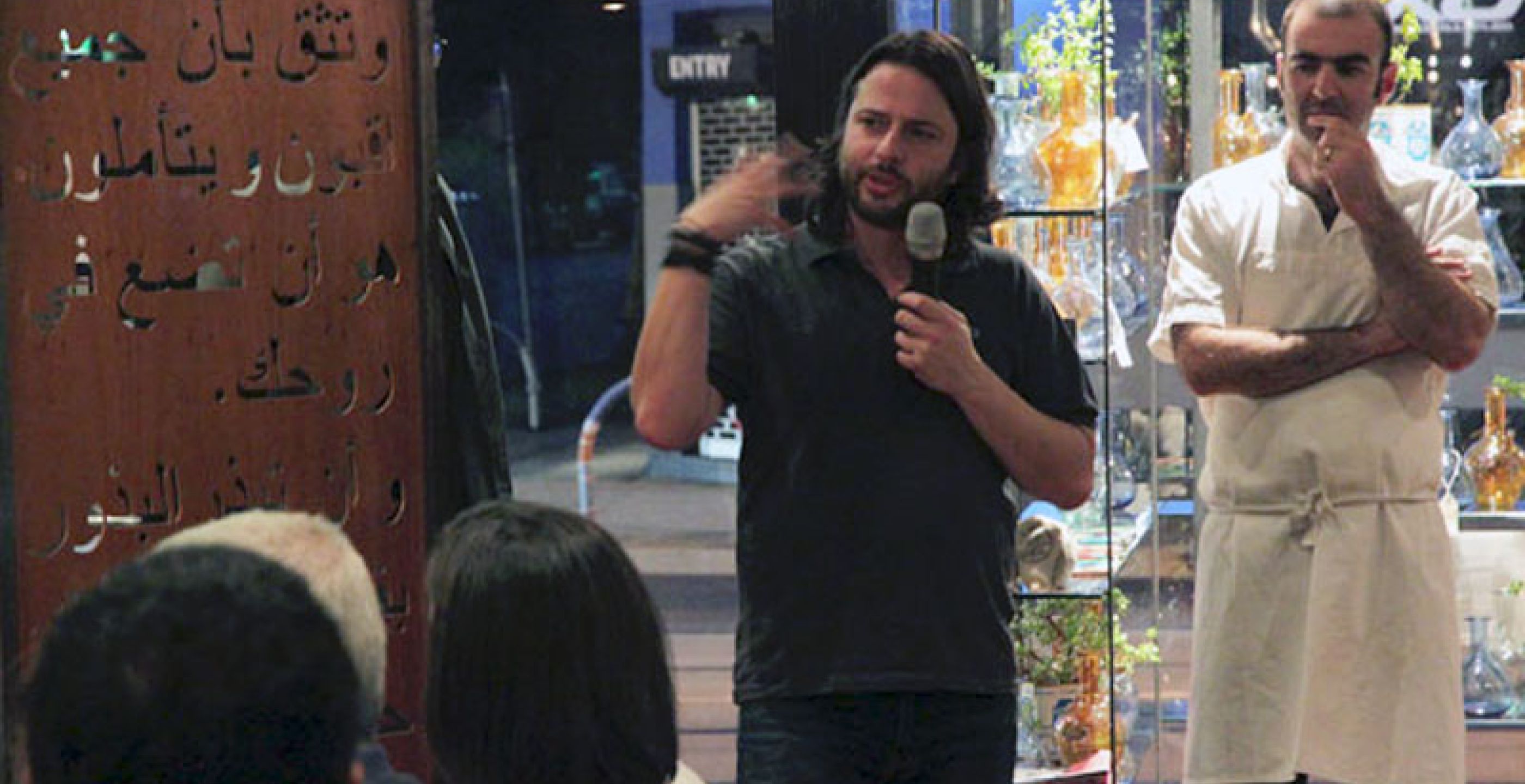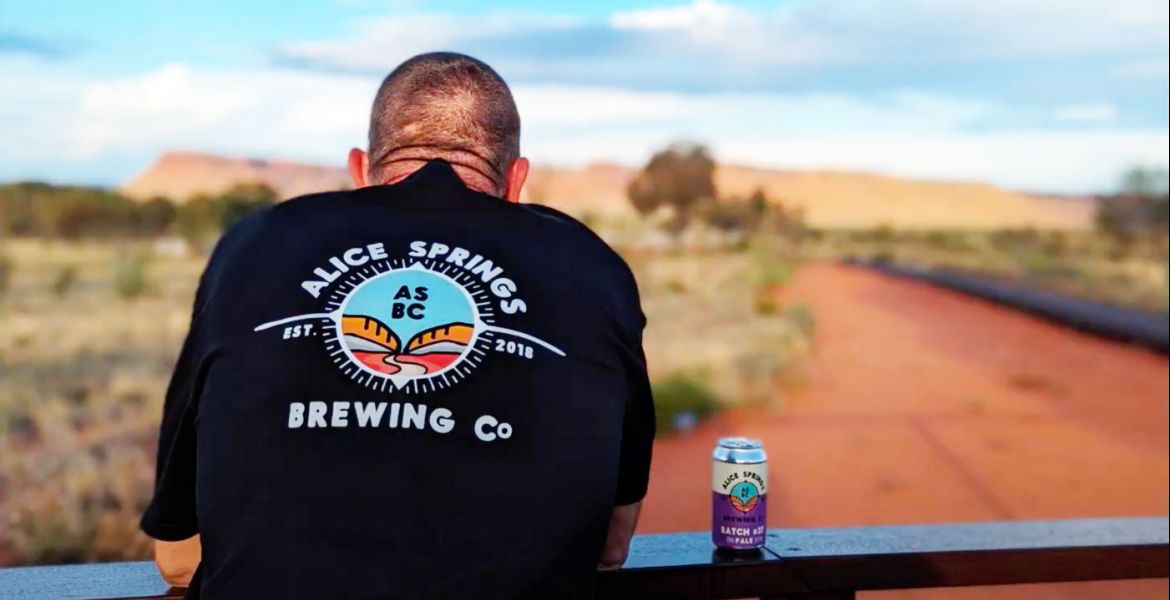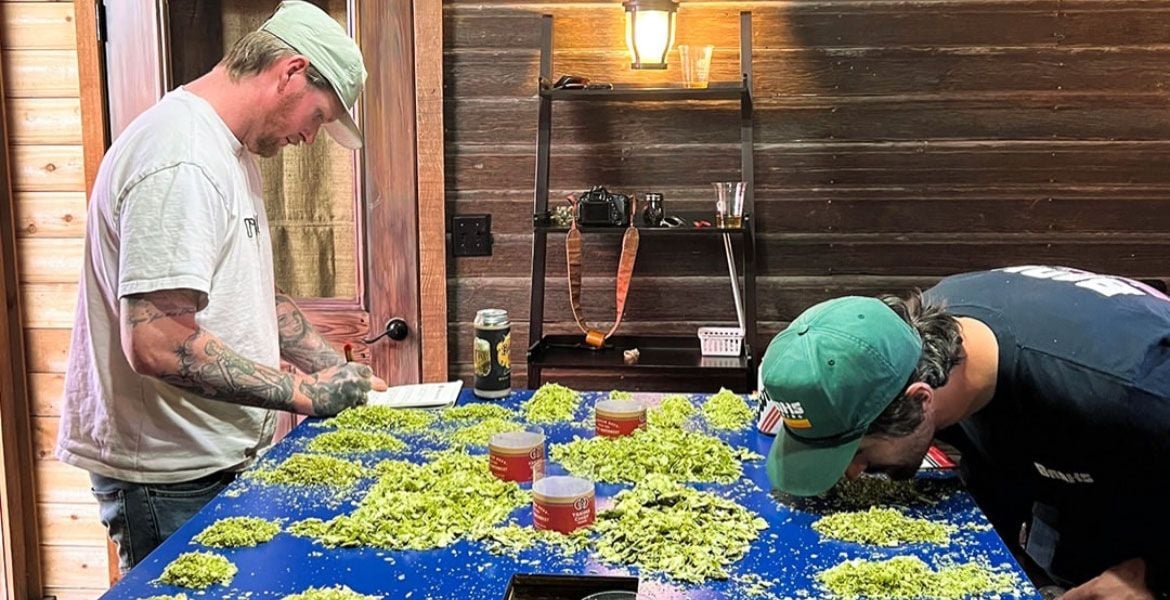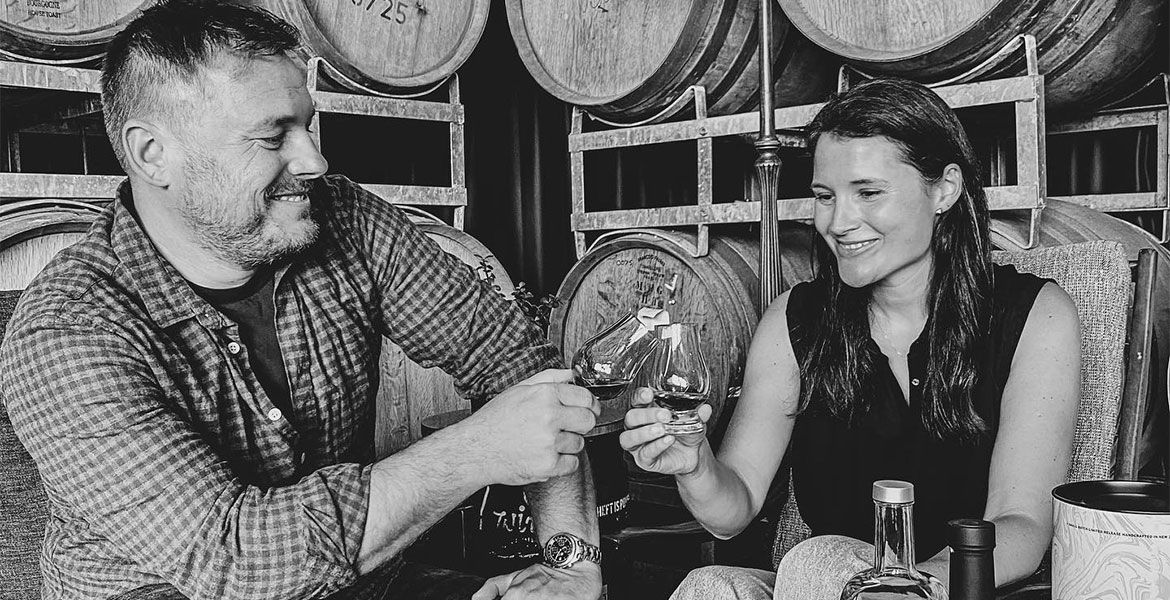There are some interesting back stories in the Australian craft beer world. We’ve got a classical pianist, former winemakers, a history professor, a stack of corporates that saw the light and even one brewer with a family connection to the top of the Australian spy profession. Combine a little of each and you’d have something approximating the life of Mazen Hajjar, the founder and CEO of Lebanon’s only craft brewery.
Prior to deciding beer was the way forward, he had been at various times an award-winning war photographer, chief financial officer at a large bank, and founder of not one but two international airlines. Today, he’s not yet 40 years old but has overseen massive growth in 961 Beer, his home country’s only craft brewery, since launching it late in 2007.
“We produced our first beer in September 2007 and sent our first kegs out in March 2008,” he says. “By December 2009 we had maxed out the brewery [a 12 hectolitre DME system with 24 hectolitre fermenters]. We then designed and built our own 35 hec brewhouse in Lebanon and went from 6,000 cases a year to 12,000 cases a year to 60,000 cases a year to 250,000 cases last year. We began exporting last year and are already in 16 different countries.”
The chances are that by the time you’ve read these first three paragraphs he’ll have cancelled Third World Debt and suggested a new cure for HIV.
Mazen (above with mic in hand) is in Australia at the minute, touring the country with his wife after Joseph Abboud (above right), the owner of Melbourne’s Rumi restaurant in East Brunswick, began importing his beers a few months ago. Joseph had travelled to his home country last year to try and source as much cool produce to bring into Australia, feeling that the existing importers were doing a pretty poor job.
Since then, the beer has been receiving the warmest of welcomes, so it wasn’t long before Mazen was invited to come along too, where he has been giving talks at Sydney bottleshops, presenting Melbourne Food & Wine Festival dinners and will soon hotfoot it to Adelaide.
“Lebanon is the country that invented beer,” says Mazen. “The problem with that is that 100 years ago we forgot all this. We started brewing mass produced yellow fizzy lagers. We forgot that the culture of beer originated there in 9000 BC.”
Prior to the 2006 Lebanon War, there had been three brewers operating in the country. Afterwards, there was one – Almaza – which has now been bought out by Heineken. Aside from that, the only other beers available were lagers from the likes of Heineken, Budweiser and Corona.
“Beer was treated like any other soft drink – something refreshing to have on the beach,” says Mazen. “Yet beer is more complex than wine; it has a wider and richer palate.
“Lebanese cuisine is the new Italian – or that’s what someone said to me recently. Finally, with globalisation, people have discovered what it’s all about. We have great food and arak and wines but no beer.”
So he decided to do something about it, as much to bring the culture back to where it began as to challenge the dominance of the existing players in the market – something that had driven his previous ventures too. The reason he says he decided to launch his own low-cost airline – MenaJet – was because he believed people should be able to fly around the region cheaper than they were previously able on the existing carriers.
“My main thing in life is to break monopolies,” he says.
First, however, he had to learn how to make beer. This was far from simple in a country in which no one was even homebrewing.
“When I decided to start making beer I bought every single book on beer,” he says. “I read through all of them.
“I was running an airline and I was moaning about my corporate life. I said [to a Danish friend over dinner]: ‘I want to make beer.’ He went back to Denmark and when I spoke to him two weeks later he told me he’d spent the whole time thinking about beer. He said he’d been reading up and wanted to do it – he wanted to be my partner.
“So I quit my job, just one month before the 2006 war. The money arrived [for the brewery] and then I woke up to the sound of bombs. I thought, ‘Oh shit! Now this Danish guy will bugger off and leave me.’ But despite the war he wanted to go ahead.
“He said, ‘We’ll have a great story to tell. Go and register the business.’ So I did – with bombs falling.”
A sign that it was his destiny to brew beer in Lebanon on came when he began reading the book by Steve Hindy, founder of Brooklyn Brewery. In it, he describes making the decision to launch his own brewery while working in the Middle East during an earlier war.
“He had decided to open the brewery when he had bombs falling all around him,” says Mazen. “So I went into the kitchen and made my first home brew there and then.
“It was terrible. I didn’t know what yeast was, didn’t know about lautering or sparging. I boiled everything together and ended up with this green thing two weeks later. I still drank it though as I’d made it.”
To improve his skills, Mazen went to Canada and took a Brewmaster course. Upon his return, he began brewing every day and sharing his beers with friends. Soon his friends were bringing other friends along and their weekly get togethers that were once focused around beer and food became focused solely around the beer.
“We started getting knocks on the door at 10pm with weirdos asking us if they could buy some of our beer,” he says.
Thus it was that by 2007 he was ready to open his brewery in Beirut. The first beer was supposed to be the 961 Lager, a beer based on the German Hell style that recently picked up Best Lager at the Hong Kong International Beer Awards, but they didn’t know how to chill it so ended up serving an eight per cent Imperial Stout first.
“People were freaked out,” he says. Not just drinkers either. As word spread that there was someone making beer on a small scale in Beirut, there was little support from the local media.
“They didn’t get behind it,” says Mazen. “People were asking us if we had burned the beer [the Imperial Stout]. ‘You say it’s intentional,’ they’d say, ‘but that’s because you can’t make the real stuff.’
“In time people started getting behind it but that was after the foreign press started taking notice. They had no idea what I was talking about, but when CNN and the BBC were running stories then they started to pay attention.
“One day. this guy came into the brewery and asked, ‘Are you Mazen? I love you,’ he said. It turned out this Lebanese guy was a brewer at Chimay in Belgian – working with the monks. He had taken other Lebanese beers to the monks there and they’d said they were terrible but then he took some of my beer to them and they loved it. He said he was so proud.
“It was a really touching moment. He left Chimay has been brewing with us ever since.”
As for the beers' early forays Down Under, the first to appear was the 961 Lebanese Pale Ale. The first release in the Brewmasters Select range, it was brewed with Danish brewer Anders Kissmeyer, who collaborated with brewers in Melbourne and Sydney last year, and imported by the Dane’s Australian contact Northdown Beer. Among the traditional Lebanese herbs and spices used as ingredients are za’atar, sumac, mint, sage, anise, and chamomile, creating a truly unique beer in which the spices dominate without overwhelming the beer experience, leading to a distinctly dry finish.
“I went to a university in Beirut where they have the oldest collection of historical documents in the region,” says Mazen. “They have these stone tablets that describe making beer. But I thought rather than trying to recreate the old recipe I’m going to celebrate Lebanese culture and tradition and tastes in a modern beer.”
The second release in the Brewmaster Select range will soon be launched in the US: an Imperial Stout made with coffee and cardamom, a spice which is used in Lebanese coffee. He says the use of such spices is about celebrating tradition rather than seeking anything gimmicky.
“I don’t think beer is about that. It’s about making something enjoyable otherwise you risk scaring away your average beer drinker,” he says. “You should never be smacked in the face. There’s no art from dropping a ton of hops into a beer. You can stick your shoe in some beers and no one would notice because it’s so hoppy. We want to make something that people come back to and discover and rediscover.”
Mazen is now helping a guy in Jordan get a brewery off the ground. It’s a task that highlights just how stark the difference is between the brewing scene in the Middle East and Australia. Where here we seem to have new breweries opening in every other suburb, there he is pleased to be helping the first craft brewer in another country.
Beyond that, he says the aim is to ensure that the brewery remains fun. Having given up several previous careers to get away from the corporate life he has no desire to continue with the brewery should it ever become more business than pleasure. In the short term, he will leave Australia shortly but will return for Good Beer Week in May. All being well, the festival will have secured a keg of the first batch of draft 961 Beer to arrive in Australia for the Festival Hub, while having enjoyed his company – and the exquisite beer and food matches – at last night’s Melbourne Food & Wine Festival dinner “The Origins Of Beer” at Rumi, we’d suggest anything he has lined up during that week will be worth checking out.
After all, what’s not to like about someone who opens a talk with: “At the beginning of everything was beer”?
You can keep up to date with all things 961 in Australia via Twitter.













